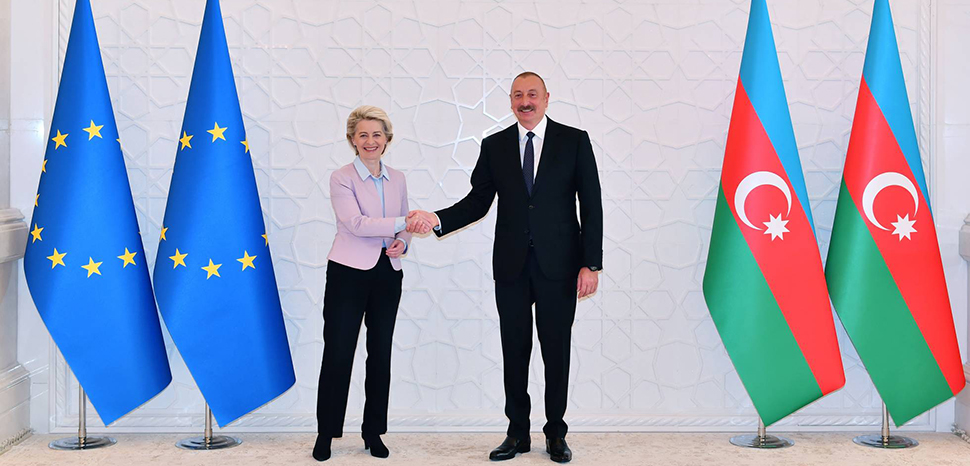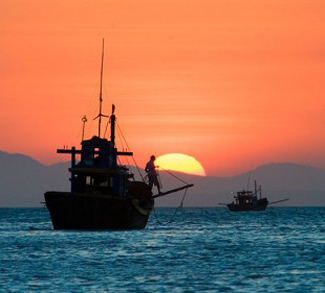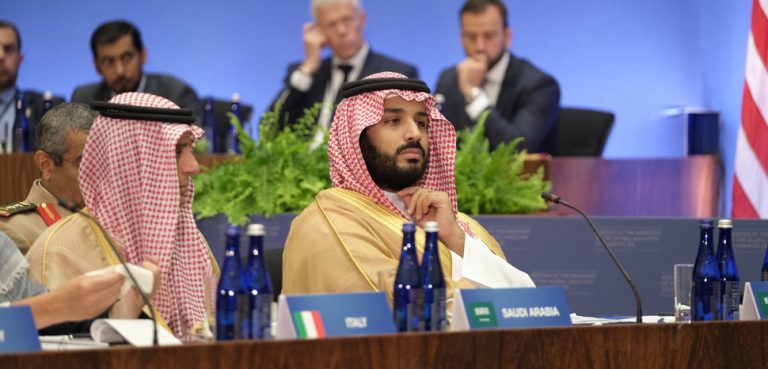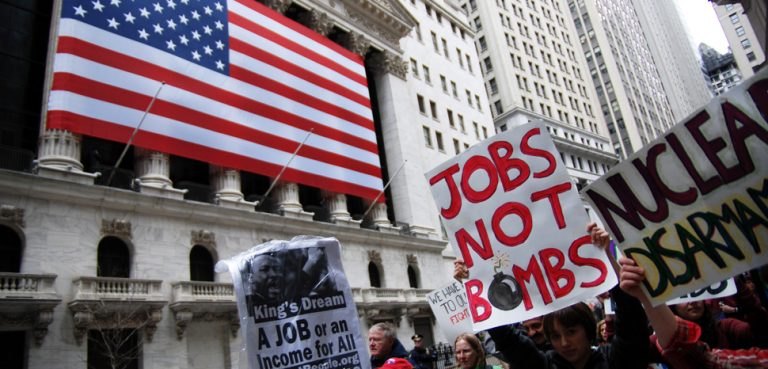In geopolitics, things are rarely the way they seem. Very few places on earth illustrate this point better than Azerbaijan, an oil-rich authoritarian state sandwiched between Russia and Iran that promotes itself as a secular Muslim country.
From the perspective of American and European politicians with an appetite for imported hydrocarbons and black caviar, Azerbaijan is a valuable Western ally. It supposedly provides leverage against Russian and Iranian influence in the Caucasus and is frequently mentioned as a friend of Israel, supplying that country with approximately 60 percent of its oil in exchange for weaponry to fight Armenians.
Too often overlooked in this calculus is a complex web of relationships between the Azerbaijani regime in Baku and the rulers of Russia and Iran.
Azerbaijan’s relationship with Russia is the most obvious and damaging part of this web. Baku entered a strategic partnership with Moscow, marked by an “Allied Relations” Declaration in February 2022, just two days before Russia invaded Ukraine. This alliance has expanded to include intelligence-sharing and hydrocarbon trade, allowing Azerbaijan to make a mockery of Western sanctions by shipping Russian oil and gas to Europe.
While Azerbaijan’s support of Ukraine’s territorial integrity has at times been loud, the burgeoning financial and political engagements with Moscow have become conspicuous. Azerbaijan is helping Russia evade sanctions and has been one of the top four destinations for Russian oligarchs during the war in Ukraine.
Moreover, the regime in Baku has endorsed Russian mediation efforts between Armenia and Azerbaijan, while rebuffing initiatives from the U.S. and the EU. Baku also has welcomed Iranian mediation based on Tehran’s position that the regional conflicts should be resolved “without the interference of non-regional and Western countries.”
Azerbaijan’s relations with Iran have been strained at times. Tehran has expressed concern for several matters, such as, the use of Israeli-manufactured drones by the Azerbaijani armed forces in the disputed area of Artsakh and the adoption of policies that tolerate or even endorse groups advocating the secession of Northern Iran, home to many ethnic Azeris.
Even so, recent developments show a warming of ties between Azerbaijan and Iran that should worry policy makers in the West and particularly those in Israel. On October 7, 2023, coinciding with Hamas’s brutal attack on southern Israel, Azerbaijan and Iran signed an agreement concerning the so-called Aras corridor. This project, involving construction of a highway and a railroad bridge, is designed to connect Azerbaijan and its exclave, Nakhichevan, through Iranian territory.
The Aras corridor agreement is part of a broader normalization between Iran and Azerbaijan, including critical agreements signed since September 2023. Moreover, there are reports that Iran will invest in territories acquired by Azerbaijan during and after the 2020 war with Armenia. In addition, there has been a notable surge (33 percent during the first nine months of 2023) in the railway trade between Iran and Azerbaijan, and experts foresee further growth in bilateral trade following completion of the Aras corridor.
But this isn’t all. On January 7, 2024, Iran and Azerbaijan finalized an accord pertaining to the construction of the Rasht-Astara railway, aimed at eliminating a longstanding gap within the International North–South Transport Corridor, known as the INTSC. The INTSC—a 7,200-kilometer corridor encompassing road, rail, and maritime routes—connects Russia’s second largest city, St. Petersburg, with the port of Mumbai, India, via Azerbaijan and Iran, bypassing the Suez Canal.
Foreseen as a channel for Russia to circumvent Western sanctions, replace European trade routes, and expand its economic influence in South Asia, the INTSC has attracted the financial support of the Putin regime, particularly evident in the funding of the Rasht-Astara railway project.
The imminent completion of the Rasht-Astara railway is poised to enhance trade among Russia, Iran, and Azerbaijan. Experts predict that the total volume of cargo shipped by rail alone will reach at least 15 million tons per year before 2030.
Azerbaijan’s role as a facilitator will bolster Russia’s position in its war against Ukraine. The INSTC offers immense potential for the Russian economy, providing Moscow with access to crucial trade partners and enabling additional funding for its campaign in Ukraine.
This initiative holds considerable significance for Iran as well, offering a way to evade Western sanctions and establish a direct land connection with Russia, a pivotal ally. The completion of the INSTC is poised to lift Iran out of isolation, transforming it into a major trade hub in Eurasia.
Under the leadership of the Aliyev family, Azerbaijan has since 1993 operated as an authoritarian regime famous for its lack of free and fair elections, suppression of political opposition, and imprisonment of journalists and activists. War crimes and ethnic cleansing committed by the Azerbaijani regime in 2020 and 2023 in Artsakh only add to Aliyev’s list of bad deeds. Baku’s desire to remain an energy partner for Europe and a supplier for Israel is a key part of the regime’s drive to secure internal and external legitimacy.
Western policymakers therefore face a critical question: is it justified to overlook Azerbaijan’s deepening economic and financial ties with Russia and Iran, along with its abysmal human rights record, merely to secure access to Baku’s diminishing oil reserves? The recent resolution of the European Parliament seems to suggest that this is not a trade-off they are viewing kindly.
Continuing relations with Azerbaijan, despite its authoritarian practices, could prove shortsighted for Israel too. It is time for Israel’s intellectuals and leadership to acknowledge the ethical concerns associated with supporting Azerbaijan against Armenia. What may feel right at this juncture must be critically examined to ensure it aligns with what is truly right.
David A. Grigorian is a Senior Fellow at Mossavar-Rahmani Center for Business and Government at Harvard’s Kennedy School and a veteran IMF Economist based in Washington. George Meneshian is an Athens-based policy analyst specializing in the Caucasus and the Middle East and a researcher at the Washington Institute for Defence and Security.
The views expressed in this article belong to the authors alone and do not necessarily reflect those of Geopoliticalmonitor.com.




